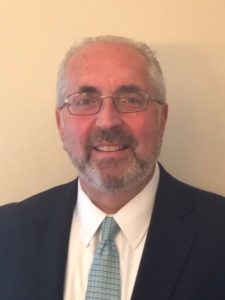Cantor Perry Fine of Temple Beth Shalom in Livingston explored epic moments in Jewish prayer and the timeless music they inspired in a three-part Zoom series, titled “Music, Mystery and the Art of Jewish Prayer.” The series, presented by Our Jewish World, was held at 1 p.m. on Nov. 3, 10, and 17. Our Jewish World is coordinated by Ilene Dorf Manahan and Melanie Levitan. The series is free and open to the public.

Cantor Perry Fine
Said the cantor, “We will examine three iconic texts in the Jewish liturgy–L’cha Dodi, the Torah Service, and the Sh’ma–probing their poetic and spiritual content, and then delving into how music over the centuries has helped amplify and has given new meaning to each.”
L’cha Dodi, meaning “Come My Beloved,” is the central prayer of the Friday night Kabbalat Shabbat service. In this nine-stanza homage to Shabbat, the congregation rises to sing poetic words that welcome the Sabbath queen, as they would welcome a bride to a marriage ceremony. L’cha Dodi is the inspiration of the 16th-century Kabbalists (Jewish mystics), an ode rooted in love of Shabbat, of Jerusalem and of the Jewish people. Over the centuries, many composers have been inspired by its words. ”Together we will explore both traditional and modern settings of this enchanting text,” Cantor Fine noted.
The Sh’ma, “Hear, O Israel, the Lord our G-d, the Lord is One,” is the central statement of monotheistic faith of the Jewish people. It is the core of both evening and morning prayers, as well as other life-cycle moments affirming Jewish identity. “We will analyze the language of the Sh’ma, its role in defining moments of Jewish identity, and iconic musical settings of it in the liturgy,” Cantor Fine pointed out.
The reading of Torah is the centerpiece of a Shabbat or holiday service. “We will explore psalm texts that make up the processional and recessional ceremonies that comprise the Torah Service and how composers over the centuries have been inspired by these psalm texts and the musical repertoire that has emerged, both traditional and modern,” the speaker said.
He added, “For anyone who has experienced a synagogue service, these texts are so familiar, part of our core of who we are as Jews, and how we connect to our tradition. But it is the music that takes these texts to new heights. It is the music, both traditional and newly composed, that inspires us, and, at its best, elevates our souls and our Jewish neshama (soul or spirit).”
Cantor Fine has been singing Jewish music ever since his days as a boy soprano soloist with Hazzan Hillel Lipsicas’s High Holiday choir in his hometown of Baltimore. His recordings include settings of the Yom Kippur Service for the Milken Archive Series of Jewish Music and music for the Friday Night Live Service.
